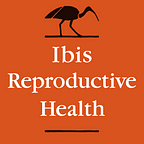Support Unseen: Highlighting the voices of non-medical abortion support providers
January 22 marks the 51st anniversary of Roe v. Wade, a landmark 1973 Supreme Court case that established the right to abortion in the United States. In 2022, the Supreme Court’s decision in Dobbs v. Jackson Women’s Health overturned that precedent, making it legal for states to enforce stricter abortion policies and even ban abortion, as 14 states have done to date. While the reproductive rights and justice movement broadly has focused mostly on legal, medical, and political responses to the Dobbs decision, advocates have long pointed out that the protections laid out by Roe v. Wade were nowhere near sufficient for ensuring access to abortion care, especially for communities that already face disproportionate barriers to health care access rooted in a history of ongoing and systemic oppression.
For folks who face the greatest barriers to care, alternative means of support have always been necessary for ensuring abortion access. These community-based support systems have evolved over time and include organizations that provide financial, practical, and logistical support for abortion care, such as abortion funds, as well as individuals — often outside of the established medical system — who provide emotional, informational, and logistical support before, during, and after the abortion itself. While this type of comprehensive, person-centered support has existed in many communities and cultures for generations, the people providing this support, and its impacts, are often overlooked.
To help address this gap, All-Options and Ibis Reproductive Health have released Support Unseen, a podcast about receiving and giving abortion support that explores the perspectives of non-medical abortion support providers who give emotional, informational, and logistical support to those seeking abortions. You can listen to the introductory episode at the link below.
“And what those of us who have done this work — emotional, non-medical support — know, is that this is actually the critical, foundational taproots of a person’s [abortion] experience.” — Paulina Guerrero
More about the Support Unseen Podcast
Stories of abortion seekers navigating and accessing care have been prevalent in conversations within communities and across the media, but what about the voices and stories of those who support them through their process? Support Unseen is a podcast about receiving and giving abortion support that explores the perspectives of non-medical abortion support providers who give emotional, informational, and logistical support to those seeking abortions. Non-medical support providers include abortion doulas, hotline volunteers, drivers, hand holders, community health workers, and others. In this limited series, we hear from people who embody these roles to understand what it’s like to provide abortion support and learn how they navigate the highs and lows of the abortion landscape in the United States. We delve into topics such as person-centered care, intersectionality, reproductive justice, and the future of abortion care. Whether you’re deep into abortion work, have had an abortion yourself, supported someone who did, or don’t know where to start, we welcome people from all walks of life to listen to this podcast!
You can stream the full podcast directly on Podbean, or anywhere else you listen to podcasts — including Apple Podcasts and Spotify.
About the Mobile, Social, and Emotion Support (mSEAS) Research Project
Support Unseen was developed from the Mobile, Social, and Emotional Support (mSEAS) project at Ibis Reproductive Health. The goals of this project were to develop evidence about experiences of abortion seekers with non-medical support and understand its effect on abortion quality and attitudes. mSEAS was a two-part project that included in-depth interviews with abortion seekers who called the All-Options Talkline and focus group discussions with abortion support providers. The All-Options Talkline provides unbiased pregnancy options counseling and emotional support for decisions and experiences with pregnancy, parenting, abortion, and adoption. This podcast builds on the findings from the study’s focus group discussions.
To learn more about the experiences of those who called the All-Options Talkline, check out these resources:
